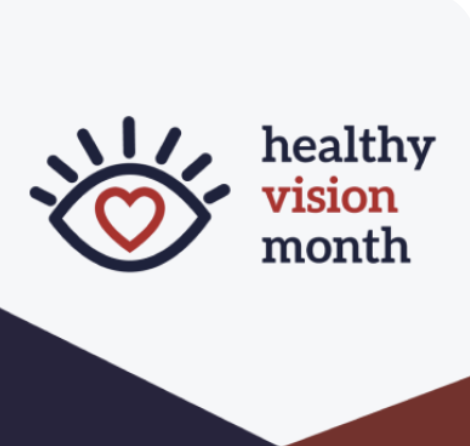The National Eye Institute has designated May as Healthy Vision Month. It is the perfect time to learn how to protect your eyes and vision, and to encourage your family members to do the same. Here are a few helpful tips:
- Wear sunglasses (even on cloudy days!). They help protect your eyes from the sun’s ultraviolet (UV) rays. Look for shades that block out at least 99% of both UVA and UVB radiation.
- Eat eye-healthy foods. You may know carrots are good for your eyes, but so is a diet rich in all kinds of vegetables and fruits — especially dark, leafy greens like spinach and kale. Fish rich in omega-3 fatty acids, including salmon, tuna and halibut, can also help keep your eyes healthy.
- Adopt a regular exercise routine. Physical activity that gets your heart beating faster can help protect you from developing eye disease.
- Maintain a healthy weight. Being overweight or obese increases your risk of developing diabetes and high blood pressure which can lead to eye diseases that cause vision loss.
- Get a comprehensive dilated eye exam. Many common eye diseases such as diabetic eye disease, age-related macular degeneration (AMD) and glaucoma have no warning signs. A dilated eye exam can detect these diseases in the earliest stages when treatment is most effective.
- Quit smoking or better yet, never start. Smoking increases your risk for developing a number of eye diseases, including age-related macular degeneration (AMD), diabetic retinopathy, cataracts, uveitis and optic nerve damage — all of which can cause blindness. The good news is quitting at any age can reduce your risk.
- Rest your eyes. This is especially important if you spend a lot of time staring at a computer, tablet or phone screen. Use the 20-20-20 rule: every 20 minutes, look away from the screen and focus about 20 feet in front of you for 20 seconds. This helps to reduce eyestrain.
- Wear protective eyewear. Safety glasses and goggles help protect your eyes when you are playing sports or performing dangerous activities at work or home like using power tools.
- Properly clean your hands and your contact lenses. Always wash your hands thoroughly before putting in or taking out contact lenses to avoid the risk of infection. Also make sure you disinfect contact lenses and replace them as instructed.
- Know your family’s eye health history. Some eye diseases like macular degeneration, diabetic retinopathy and glaucoma are hereditary so it is important to know if you are at increased risk and proactively share this information with your eye doctor.


